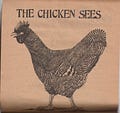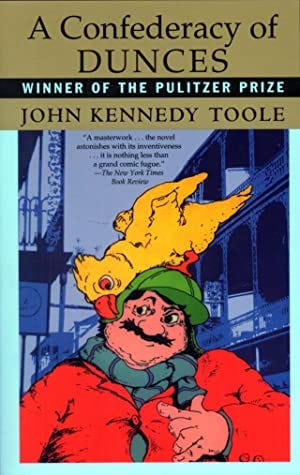Reactions to my UnHerd piece on Marianne Eloise’s self-aggrandizing mental illness memoir continue to roll in. Let me use this Twitter thread as a proxy for a lot of reactions.

The purpose of a memoir is to make your own life intelligible to people who are not like you and, in some way, to deepen their understanding of broader issues. That I am a white man and Marianne Eloise is a (incredibly privileged) white woman is not germane to the task of reviewing her memoir. Yes, I critique how Eloise wants to be perceived, because that is a crucial element of any memoir and thus entirely appropriate for a reviewer to discuss.

No. As I make clear in that piece, having it both ways means demanding simultaneously that there’s nothing wrong with you but also that you are entitled to special accommodation from society for having a disability. And this is selfish and disordered; the entire concept of accommodation depends on the idea that the condition you’re dealing with hurts you in some way. “I demand that you give me what I demand because of my condition, but also it makes me deeper and more interesting than you” is childish and destructive.

I am someone who has dealt with an at-times debilitating psychotic disorder for twenty years. I have had plenty of time to think about that condition. And what I have determined, through harsh experience, is that the idea of defining yourself by your disability is self-injurious. It doesn’t work, and many of those who are plastering their Instagram with their diagnoses will someday rue their decision to do so. They’ll be old (and this tweeter is almost certainly young) and their “community” will bring them no comfort. I have done lots of group therapy and I’m in an online support group. Those help me. But to be part of a community of people with bipolar disorder, a condition I hate having and want gone from my life? Why? I demand the right to not define myself by a condition that has only hurt me, and I further demand the right not to pretend that condition is good.

this is not an argument

But I think young people are being hurt by this ideology. I think it’s actively doing harm. Everything I say about mental illness I say in the service of preventing people from experiencing the kind of pain I have experienced. No, there is no obligation to comment on anything. But I do feel an obligation to advance a vision of mental illness and dealing with it that causes the least harm.
Also, you know, I was asked to review a book, so I reviewed it.
This Week’s Posts
Monday, May 2nd - “Birds Aren’t Real” Sucks
The last thing the left needs is more irony and meta bullshit.
Tuesday, May 3rd - Let’s Talk About Comments (subscriber only)
Please, be cool.
Wednesday, May 4th - It’s a Marathon, Not a Sprint
Yes, you’re outraged, and it’s right for you to be outraged. But what comes after outrage is what matters.
Friday, May 6th - You End Up Becoming Yourself (subscriber only)
A rumination on Lana Del Rey as a means to consider the concept of the authentic self. I’m the hardest working writer in the biz, baby.
And we brought the Confederacy of Dunces book club to a close.
From the Archives
In 2015 I found sympathy for Rachel Dolezal for the Los Angeles Times.
Song of the Week
Book Recommendation
A Confederacy of Dunces, John Kennedy Toole, 1980.
We just finished a Book Club about this book, and I just adored it. It was on my to-read list for years and years. I always avoided it because I had absorbed the notion that it's a mean-spirited book, a prurient one. And I can't say that's totally wrong. But there's a lightheartedness here, too, a genuinely joyful delight in unveiling the series of remarkably well-drawn characters and the perpetually entertaining situations they get into. Toole's prose is so damn sharp, consistently surprising, and god, the menagerie of people he invents - so alive, weird, singular, and charming despite being such obvious caricatures. Characters wander into the book when you least expect it, steal a scene, and wander right out. Every one of them makes me believe that they exist outside of the book, that they have little lies and realities that they putter around in off the page.
I will say that if you're someone who needs a lot of plot, a tight structure, and a conventional set of arcs, this book isn't for you. Also, while I think this book is hilarious, I never laughed out loud at it, since that's not something I do with books. (I suspect many readers are the same way.) But if you take this book for what it is, you'll find it's a truly unique treat, a boisterous, crackling, impeccably observed slice of New Orleans life. Ignatius J. Reilly is a big fat pretentious idiot, and I love his story to bits.
Comment of the Week
I've always found it fascinating that many fans/industry insiders/insert whoever here feel that music artists in particular are supposed to be set in amber when it comes to maintaining an image and particular style of music "forever" until at some point they don't and then the artist either falls of the charts cliff or begins the cycle of rebirth. Artists evolve and age into their craft (for better or worse.) One could argue Dylan and Morrison should have stopped in the 70s but then we'd miss out on some great albums surrounded by pabulum. There are plenty of bands that adhered to a formula and achieved great success - Pet Shop Boys for example or bands like the Fall where every album was intended to be different.
Del Rey, like Lorde have grown up and with the success they achieved have been able to separate themselves (to a degree) from the marketing machines to at least begin to do their own things. Artists like Adele, Swift, Shereen, Drake become their own marketing machines.
I enjoy listening to all types of music genres so for me it's less about if the artist is authentically living or not. It's like...about the music man and how I react to it. - BGP2
That’s it! See you next week.





Isn't it mentally exhausting to be perpetually, willfully misunderstood and misrepresented? (FWIW I have felt free to disagree with you at times while never having to pretend I don't know what you're talking about.)
On the subject of book reviews I will just mention again that I think The Siege of Krishnapur would be an EXCELLENT choice for the future.